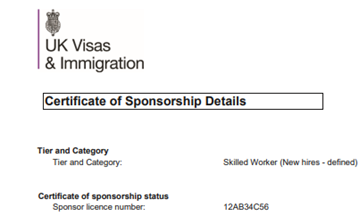Routine Inspectors and Testers, classified under SOC Code 8143, are essential quality assurance professionals responsible for ensuring the reliability and safety of various products across multiple industries. Their key responsibilities include:
- Examination of Articles: Inspect items for surface flaws such as cracks, dents, defective sealing, or broken wires using visual inspection or aids like microscopes and magnifying glasses.
- Assembly Checks: Ensure sequence of assembly operations is followed and verify assemblies and sub-assemblies against parts lists to identify any missing components.
- Test Equipment Setup: Prepare test setups, connect items or systems to power sources or pressure outlets, and operate controls to evaluate the performance and operation of electrical plants, machinery, and electronic systems.
- Material Inspection: Examine various materials including yarn packages, textile fabrics, garments, wood products, paper, plastics, rubber materials, food products, and storage containers, checking conformity to specifications.
- Defect Reporting and Recommendations: Identify and mark repairable defects, reject faulty items, and report any significant or recurrent defects while recommending improvements to production processes.
Given the increasing complexity of manufactured goods, the demand for skilled Routine Inspectors and Testers is on the rise. This guide aims to assist HR professionals in effectively hiring and sponsoring these critical roles under the UK’s immigration system.
What is SOC Code 3411 for Routine inspectors and testers?
SOC Code 8143 refers to Routine Inspectors and Testers who are responsible for examining and testing various articles for defects and ensuring quality in production processes. Their responsibilities can include:
- Visual inspection: Examining articles for surface flaws such as cracks, dents, defective sealing, or broken wires, utilizing aids like microscopes or magnifying glasses.
- Assembly checks: Verifying the sequence of assembly operations and assessing assemblies and sub-assemblies against parts lists to detect missing items.
- Set up testing equipment: Connecting items or systems to power sources, pressure outlets, and operating controls to evaluate performance and operation of electrical plants, machinery, and electronics systems.
- Material examination: Inspecting yarn packages, textile fabrics, garments, wood products, paper and paperboard, plastics, rubber materials, food products, and food storage containers for compliance with specifications.
- Defect marking and reporting: Marking any repairable defects, rejecting faulty items, and reporting recurrent or major defects while recommending improvements to production methods.
Routine inspectors and testers play a vital role in maintaining quality assurance within various industries by ensuring that products meet established standards and specifications.
Eligibility to Hire Routine inspectors and testers (SOC Code 3411)
1. Job Requirements
Routine inspectors and testers must possess specific qualifications and experiences to effectively carry out their roles. These may include:
- Educational Background: A diploma or degree in engineering, materials science, or a related field is often preferred.
- Experience: Prior experience in quality control, inspection, or a related field is highly advantageous.
- Attention to Detail: Must demonstrate strong observational skills to identify imperfections and ensure compliance with specifications.
- Technical Skills: Proficiency in using inspection tools such as microscopes, magnifying glasses, and various test equipment is essential.
- Knowledge of Standards: Familiarity with industry standards and specifications related to inspected materials (e.g., textiles, electronics, food products).
- Reporting Skills: Ability to document findings accurately and recommend improvements to production processes based on inspections.
- Problem-Solving Abilities: Capable of analyzing issues related to defects and suggesting corrective actions.
Ensure the job description aligns with SOC Code 8143 and that the inspector/tester's experience and qualifications meet the expectations for the role.
- Salary Thresholds
- Use the Minimum Salary Calculator to ensure your salary offer meets immigration requirements.
Sponsoring Routine inspectors and testers: A Step-by-Step Guide for HR Professionals
Once you’ve confirmed that the role and candidate meet the eligibility requirements, follow this step-by-step guide to sponsoring Routine inspectors and testers under SOC Code 8143.
Step 1: Obtain a Sponsor Licence
Before hiring non-UK Routine inspectors and testers, your company or institution must obtain a sponsor licence. This licence enables you to legally sponsor overseas Routine inspectors and testers under the Skilled Worker Visa program.
- Sponsor Licence Application: Submit documentation proving that your business is legitimate and has a genuine vacancy. Visit the sponsor licence application guide for more information.
- Sponsor Licence Fees: Small businesses typically pay £574, while larger institutions pay £1,579. For more information, visit the sponsor licence fees guide.
- Processing Time: Applications typically take up to 8 weeks, but using the Sponsor Licence Priority Service can reduce the processing time to 10 working days.
Once your sponsor licence is approved, you will receive a sponsor licence number, which allows you to assign Certificates of Sponsorship (CoS).
Step 2: Assign a Certificate of Sponsorship (CoS)
Once you have your sponsor licence, the next step is to assign a CoS to the Routine inspectors and testers. This document provides key details about the job and the individual being sponsored.
- Defined vs Undefined CoS: Use a Defined CoS for Routine inspectors and testers applying from outside the UK, and an Undefined CoS for those already in the UK. Learn more in the Defined & Undefined Certificates of Sponsorship guide.
- Required Documents: Provide details such as the Routine inspectors and testers’s portfolio, passport and job offer. Refer to Documents Required for Certificate of Sponsorship for a full list of necessary documents.
Step 3: Apply for the Skilled Worker Visa
Once the CoS is issued, the Routine inspectors and testers can apply for the Skilled Worker Visa.
- Visa Fees: Fees vary depending on the role and visa length—use the visa fees calculator to estimate the costs.
- Immigration Skills Charge: Employers are required to pay this charge as part of sponsoring non-UK workers. This is separate from visa fees.
Conducting a Right to Work Check for Routine inspectors and testers
Before the Routine inspectors and testers begins working, you must conduct a right to work check to ensure they are legally allowed to work in the UK.
- Manual Right to Work Check: Verify original documents such as the Routine inspectors and testers’s passport and visa.
- Online Right to Work Check: If the Routine inspectors and testers holds an eVisa, you can use the UK government’s online system to verify their right-to-work status.
For more details on how to perform these checks, see the right to work check guide.
Post-Hiring Responsibilities and Compliance
- Record-Keeping and Reporting
- Record-Keeping: Maintain accurate and up-to-date records of the Routine inspectors and testers’s employment details, salary and contact information.
- Reporting Changes: Report any significant changes to the Routine inspectors and testers’s role—such as promotions or salary increases—via the Sponsor Management System (SMS).
- Sponsor Licence Duties and Compliance
- Failure to comply with your sponsor licence duties can result in penalties or sponsor licence revocation, impacting your ability to sponsor future Routine inspectors and testerss.
How Borderless Can Help with Sponsoring Routine inspectors and testers
Sponsoring Routine inspectors and testers under SOC Code 8143 can be a complex process, but Borderless can simplify it for you. We offer comprehensive support to help you manage the entire sponsorship process.
End-to-End Sponsorship Support
At Borderless, we assist with:
- Sponsor Licence Application: Guiding you through the application process and ensuring all required documents are submitted correctly.
- Certificate of Sponsorship Assignment: Streamlining the CoS process to make hiring easier.
- Compliance Management: Helping you stay compliant with immigration laws to avoid penalties.
If you need assistance with hiring or sponsoring Routine inspectors and testers, get in touch for personalised support.
Conclusion
Hiring and sponsoring Routine inspectors and testers under SOC Code 8143 can be a rewarding way to enrich the cultural landscape of your organisation. By following the steps outlined in this guide, you can successfully navigate the sponsorship process while ensuring compliance with UK immigration laws.
For further guidance, Borderless is ready to assist you with all your sponsorship needs. Contact us for expert advice.
Automate Home Office Audits with Borderless
The Borderless platform provides a centralized system for all sponsorships, automating reminders for key tasks and ensuring best practices across your organization, simplifying audit preparation and ongoing compliance.






